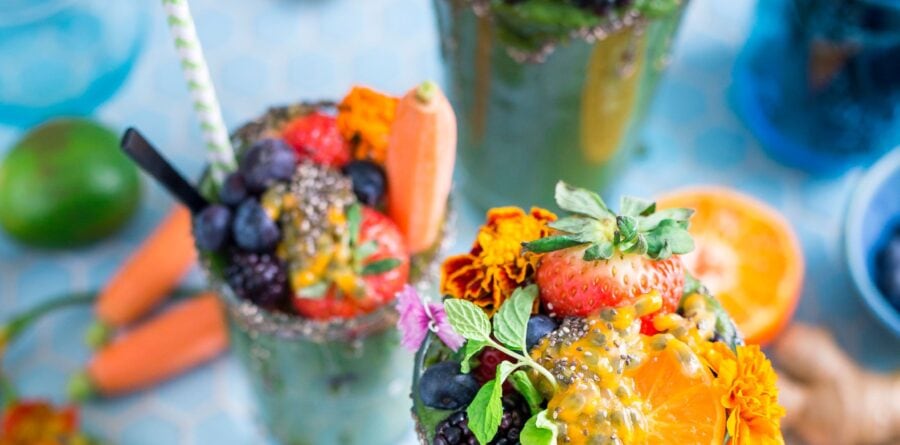Is Instagram wellness a bad influence on health?
9/09/2021 - Natasha is Wide Eyed

The term Wellness was coined in 1960’s California. It describes self-care and aspiring to look after your body in the best ways possible. The reason Natasha works in the wellness industry is to improve her client’s health, so she would certainly hope that she is a good influence.
Natasha spent years acquiring knowledge and qualifications to get the advice right. But I’m afraid liver (a true superfood) doesn’t look quite as good as artfully assembled fruit and veg!
Currently, you can’t run a business without having a social media presence and to be authentic you need showcase your message in many different ways. We’ve become more visual, consuming information quickly through pictures and videos. But that can come at a cost because people can manipulate and distort a message if the image is pretty enough.
This is highlighted in a documentary on BBC iPlayer called “Bad Influencer: The Great Insta Con”.
The programme is about a woman from Melbourne Australia called Belle Gibson and her meteoric rise to super influencer in 2014. Her Instagram account was all about her ‘wellness’ journey controlling a brain tumour with food.
Her followers, of which she had millions, were told through beautiful posts and her app The Whole Pantry, to eat only fruits and vegetables, no dairy, no meat, nothing with more than 5 ingredients and no alcohol.
Her followers saw her glowing with health and wanted a piece of the action. Two such followers shown in the programme and based in the UK, were Maxine Ali and Pixie Turner. It struck a chord with Natasha as she remembered coming across Pixie on Insta and liking her style and while Natasha found her advice didn’t align with ethos for optimum nutrition, she was definitely envious of her following!
Pixie Turner had been diagnosed with high cholesterol at 19 and spurred on by Belle’s shining example of taking control of her own health, she quickly adopted her way of life and created her own following with Instagrammable fruit bowls and beautifully shot veggies. She found that her health did not improve.
Maxine Ali had turned to Belle’s app and later her book, published by Penguin, after she had been diagnosed with Ulcerative Colitis, a chronic condition of ulcers in the bowel, as a teenager. Tired of the conventional treatment of steroids that led to her losing friends as her face bloated and she gained weight, this vulnerable teenager was convinced by Belle to take control of her own health through food. In her own words she described how a year of following the advice made her feel even worse, but she was still convinced it wasn’t the food, because she believed so strongly in Belle’s story.
Unfortunately, that’s just what it was, a story.
A journalist called Richard Guilliat became suspicious that Belle’s tumour never received treatment and yet she was the picture of health. He uncovered the truth that she had made it all up and once it was published the backlash from her former adoring fans wiped her influencing days away.
How she was able to have the backing of giants like Apple, who used The Whole Pantry to promote their Apple watch and Penguin to publish a book, without either doing any research into Belle’s credentials is inconceivable.
Of course, there are still millions of Instagram accounts producing pretty pictures with no substance whilst influencing followers to eat in ways that are unsubstantiated and lack credible evidence.
But the overall message from this documentary seemed to be that wellness, in general, is a scam. And that couldn’t be further from the truth.
Visit natashaiswideeyed.com for free recipes, articles, and videos to treat yourself to a bigger slice of life. Or for help with issues such as ulcerative colitis and cholesterol levels email for an appointment quote to natasha@natashaiswideeyed.com
All articles on this news site are submitted by registered contributors of SuffolkWire. Find out how to subscribe and submit your stories here »



